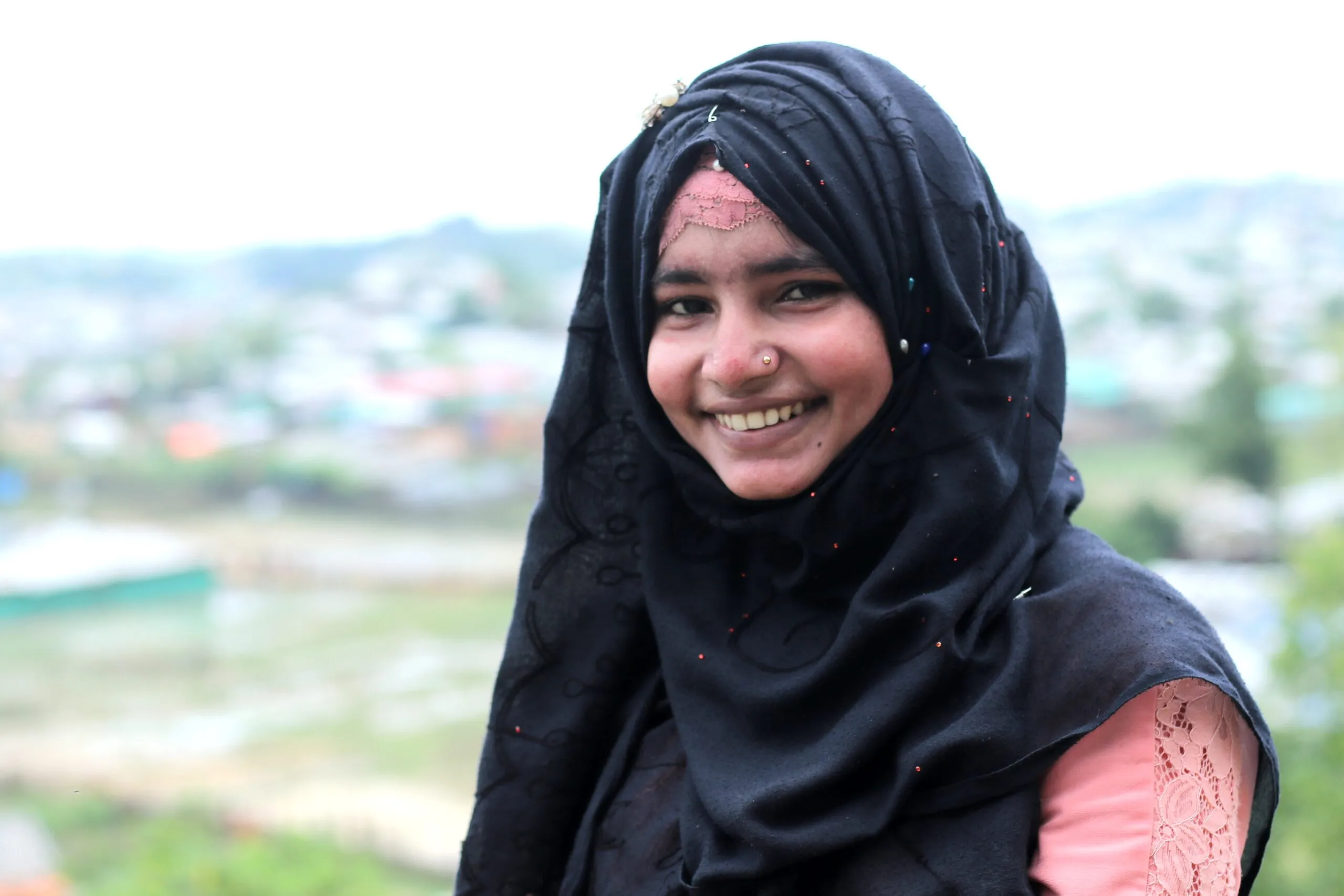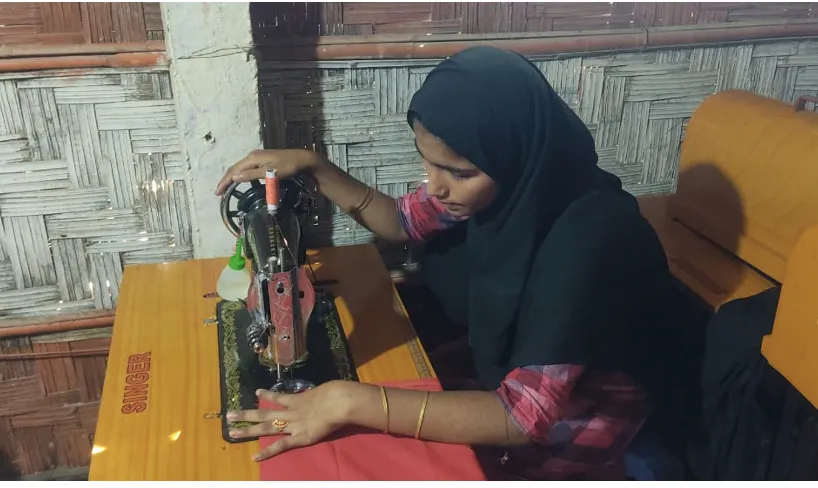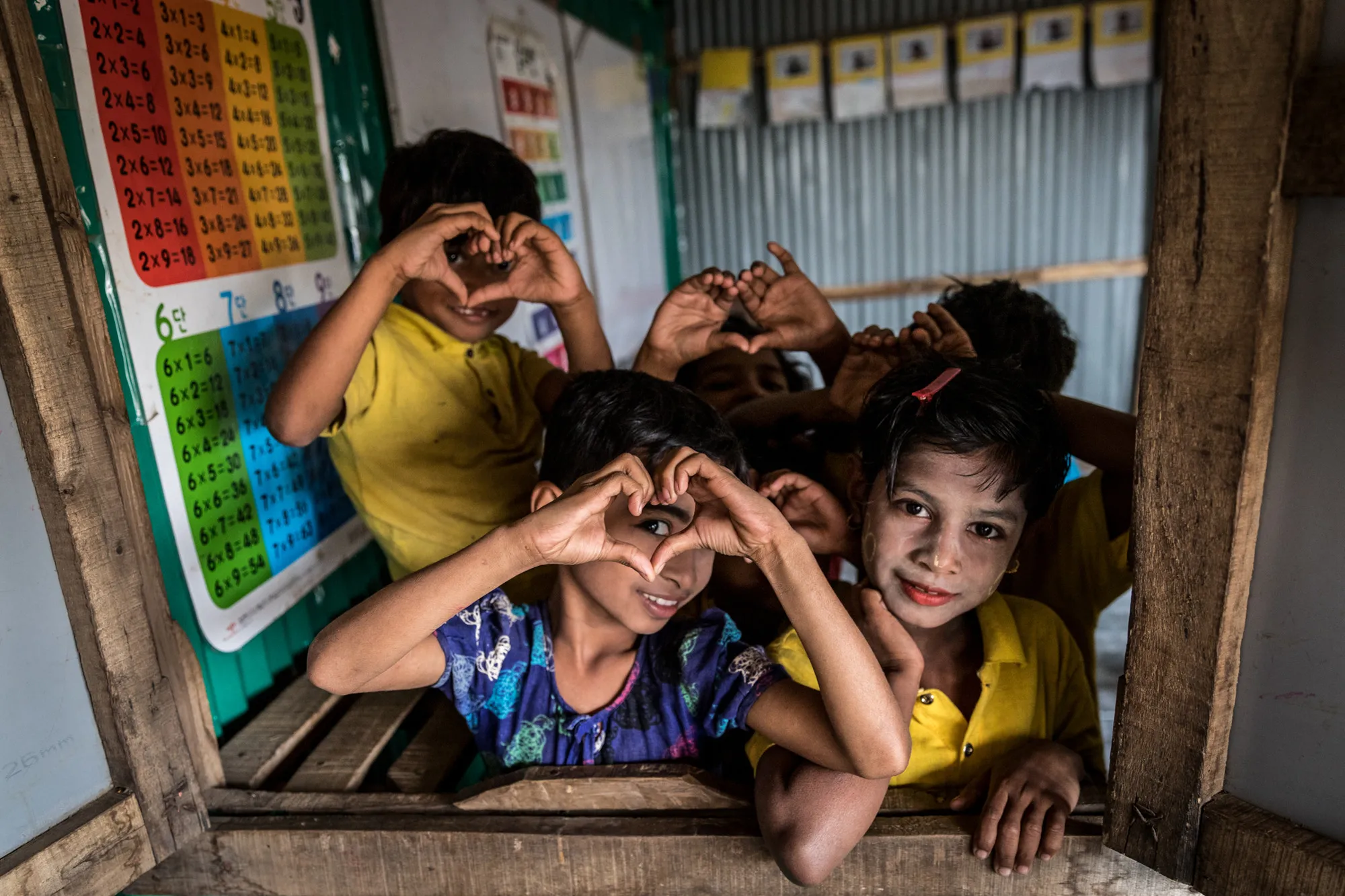In all, CARE Bangladesh has reached more than 122,000 people to date, 67,597 of them women or girls.
For Sufaira, the Shantikhana was a lifesaver as she grew up, recovering from the violence in her home country that caused her family to flee to Bangladesh. It was there that she learned to sew. She loved being able to create something with her own hands, especially since new clothes are difficult to obtain in refugee camps.
Organizers work hard to ensure the spaces are as safe as the name communicates, offering participants the freedom to express themselves.
In the Shantikhana, girls like Sufaira receive psychosocial support to recover from trauma while also learning life skills, basic literacy, and arithmetic. The spaces also include recreational activities as well as awareness sessions on violence against women and girls, human trafficking, polygamy, menstrual hygiene, child abuse, and early marriage.



